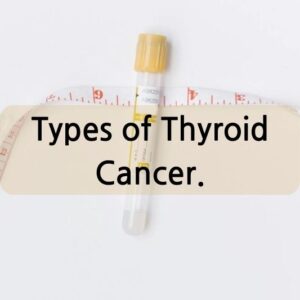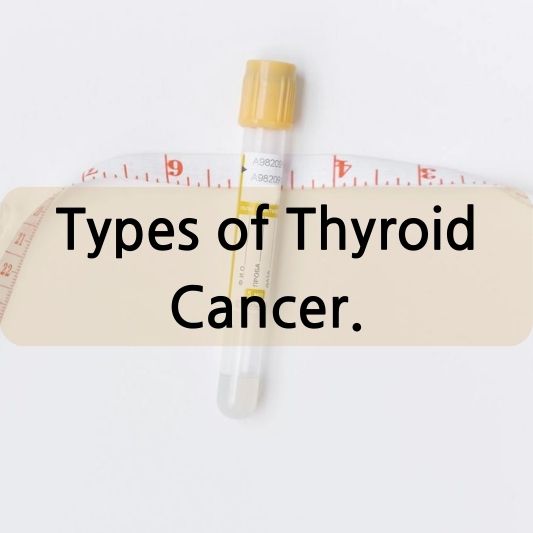Thyroid cancer is a relatively rare but serious condition that affects the thyroid gland, a small butterfly-shaped gland located in the front of the neck. This article delves into the intricacies of thyroid cancer, including its types, causes, symptoms, diagnosis, treatment options, prognosis, and ways to cope with its challenges.

Types of Thyroid Cancer
Papillary Thyroid Cancer
Follicular Thyroid Cancer
Medullary Thyroid Cancer
Anaplastic Thyroid Cancer
Thyroid cancer encompasses various types, each with its own characteristics and treatment approaches. The most common types include papillary and follicular thyroid cancer, while medullary and anaplastic thyroid cancers are less prevalent but more aggressive.
Causes and Risk Factors
Genetic Predisposition
Radiation Exposure
Environmental Factors
While the exact cause of thyroid cancer remains unclear, certain factors such as genetic predisposition, exposure to radiation, and environmental influences play significant roles in its development.
Thyroid Cancer Symptoms and Signs
Lump in the Neck
Hoarseness
Difficulty Swallowing
Swollen Lymph Nodes
Thyroid cancer often manifests with subtle symptoms, including a lump or swelling in the neck, hoarseness, difficulty swallowing, and swollen lymph nodes. Early detection and prompt treatment are crucial for a favorable outcome.
Diagnosis and Screening
Physical Examination
Imaging Tests
Biopsy
Diagnosing thyroid cancer involves a series of evaluations, including physical examinations, imaging tests such as ultrasounds and CT scans, and biopsy procedures to analyze thyroid tissue for cancerous cells.
Thyroid Cancer Treatment Options
Surgery
Radioactive Iodine Therapy
Thyroid Hormone Therapy
External Beam Radiation Therapy
Chemotherapy
Treatment modalities for thyroid cancer may include surgery to remove the thyroid gland, radioactive iodine therapy to destroy cancer cells, hormone therapy to regulate hormone levels, radiation therapy, and chemotherapy in advanced cases.
Prognosis and Survival Rates
Factors Affecting Prognosis
Survival Rates by Stage
The prognosis of thyroid cancer depends on various factors, including the cancer type, stage at diagnosis, age, and overall health of the individual. Survival rates vary across different stages of the disease.
Coping Strategies and Support
Emotional Support
Support Groups
Lifestyle Changes
Coping with thyroid cancer involves emotional support from loved ones, participation in support groups, and making lifestyle adjustments to promote overall well-being and resilience throughout the treatment journey.
Prevention and Awareness Campaigns
Importance of Early Detection
Promoting Healthy Lifestyle Choices
Raising awareness about thyroid cancer and its risk factors is essential for early detection and prevention. Encouraging healthy lifestyle choices and regular screenings can contribute to reducing the incidence and impact of this disease.
Research and Advancements
Targeted Therapies
Immunotherapy
Ongoing research efforts focus on developing targeted therapies and immunotherapy approaches to improve treatment outcomes and enhance the quality of life for individuals living with thyroid cancer.
Conclusion
Thyroid cancer poses significant challenges, but with early detection, prompt treatment, and ongoing support, individuals can navigate through its complexities and achieve positive outcomes. Raising awareness, promoting prevention strategies, and fostering research advancements are key steps in combating this silent threat.
Frequently Asked Questions (FAQs)
What are the risk factors for thyroid cancer?
Thyroid cancer risk factors include a family history of the disease, exposure to radiation, certain genetic conditions like familial medullary thyroid cancer, and gender (females are more prone).
How is thyroid cancer diagnosed?
Diagnosis typically involves a combination of physical examination, imaging tests such as ultrasound, CT scans, and MRI, and biopsy procedures to analyze thyroid tissue for cancerous cells.
What treatment options are available for thyroid cancer?
Treatment options for thyroid cancer may include surgery to remove the thyroid gland, radioactive iodine therapy, hormone therapy, external beam radiation therapy, and chemotherapy in advanced cases.
What is the prognosis for thyroid cancer patients?
Prognosis depends on various factors including the type and stage of cancer, age, overall health, and response to treatment. With early detection and appropriate treatment, many individuals with thyroid cancer have a good prognosis.
How can individuals support loved ones diagnosed with thyroid cancer?
Supporting loved ones diagnosed with thyroid cancer involves offering emotional support, helping with daily tasks, attending medical appointments together, and providing encouragement throughout their treatment journey. Joining support groups and educating oneself about the condition can also be beneficial.
Learn more about Thyroid Cancer!
